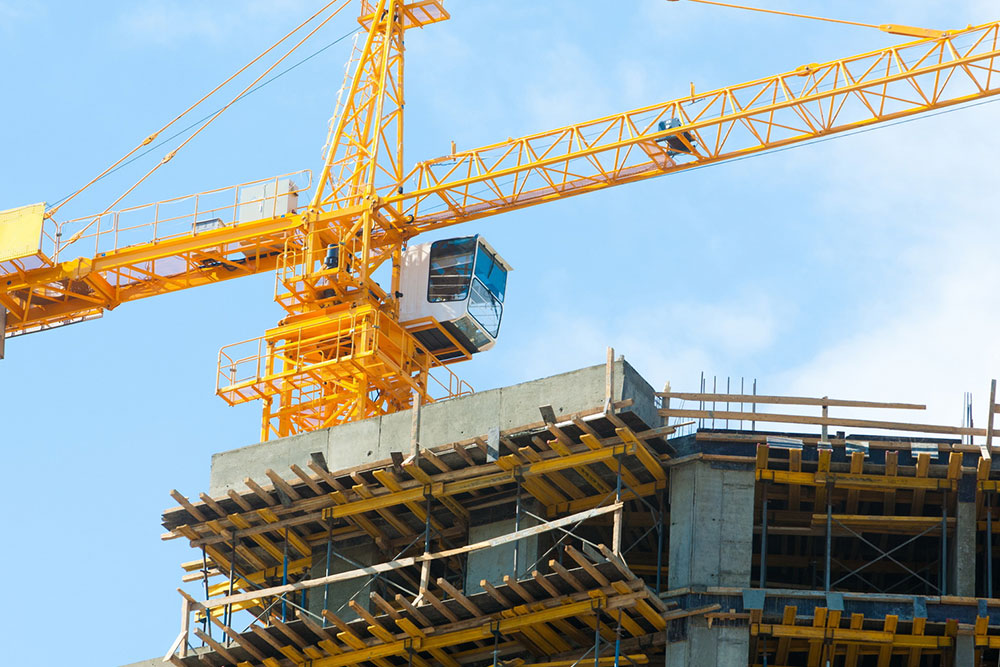Comprehensive Guide to Construction Permits, Regulations, and Compliance for Builders and Homeowners
This comprehensive guide explores the importance of construction permits, including their purpose, application process, fee structures, compliance standards, and risks of neglecting permit requirements. It aims to help homeowners and builders understand how to navigate construction regulations effectively, ensuring safety, legality, and smooth project execution.

Comprehensive Guide to Construction Permits, Regulations, and Compliance for Builders and Homeowners
Embarking on a construction project, whether it’s a major home renovation, an extension, or a new building, requires more than just design and materials. One of the most critical steps in ensuring your project complies with local laws and safety standards is obtaining the appropriate construction permits. These official documents serve as a legal affirmation that your building or renovation plans meet all necessary safety, health, zoning, and heritage regulations established by your local authorities. Failure to secure the correct permits can result in significant legal and financial consequences, including delays, fines, or even forced removal of unauthorized work.
This article provides a detailed and comprehensive overview of construction permits, including their importance, the process for applying, fee structures, compliance standards, and the risks associated with neglecting permit requirements. Whether you’re a professional builder, contractor, or homeowner planning a renovation project, understanding these key aspects of construction permits is essential for a smooth, legal, and successful project.
Understanding the Significance of Construction Permits
Construction permits serve multiple vital functions. Firstly, they act as official approval from local authorities that your construction plans comply with the building codes and safety standards established to protect residents, property values, and the environment. These codes are often based on international standards such as the International Building Code (IBC), which sets out essential design, structural, and safety requirements tailored for different types of buildings and local conditions.
Secondly, permits ensure that construction work is inspected at various stages to verify compliance. These inspections help prevent future issues such as structural failures, electrical hazards, or health violations. They also provide a transparent record that can be crucial during property transactions or future renovations.
Finally, permits uphold community standards and protect local heritage, especially in regulated historic districts. They help maintain the aesthetic and functional integrity of neighborhoods, ensuring that new developments are compatible with their surroundings.
Key Points About Construction Permits You Should Know
Permits are mandatory for most construction projects: From minor electrical upgrades to major additions, most projects require legal approval.
Permitting processes vary: Local government offices handle permits, with specific requirements depending on jurisdiction.
Timelines differ: The process can take from a few days to several weeks, depending on project complexity and local agency workload.
Fees and costs: Permit fees are set based on project size, scope, and type. Notably, in 2016, permit review fees increased by approximately 66% to offset the rising costs of regulatory oversight.
Inspection stages: Most permits require inspections at key phases—foundation, framing, electrical, plumbing, and final approval—to ensure compliance.
How Are Construction Permit Fees Structured?
Understanding the cost structure of permits is vital for budgeting your project. Typically, permit fees are calculated based on factors such as the project's size, scope, and estimated value.
Recently, a new payment system was introduced for Standard Plan Review permits. Instead of paying the full fee upfront, applicants now pay in phases. The initial deposit covers the review process, enabling permits to commence. Once the plans are approved, the remaining balance is due. This phased approach helps streamline cash flow management for both applicants and local authorities.
Regarding fee increases, in 2016, authorities increased review costs by roughly 66%. This hike was part of broader efforts to improve regulation enforcement, safety inspections, and project oversight. For homeowners or builders, it’s essential to factor in these costs when planning your project budget to avoid surprises later.
Compliance with International Building Codes (IBC)
Construction projects must adhere strictly to established standards, primarily the International Building Code (IBC). The IBC provides comprehensive guidelines covering structural integrity, fire safety, electrical safety, plumbing, and energy efficiency. Local jurisdictions often modify or supplement the IBC to address regional needs such as seismic activity or climate conditions.
Applying for a permit involves submitting detailed construction plans that demonstrate compliance with these standards. Typically, plans should include site layouts, structural drawings, electrical and plumbing schematics, and safety features.
Local permit offices review these documents for conformance. Once approved, construction can begin, but ongoing inspections are essential to confirm that the work follows the approved plans and standards.
Risks of Skipping Permits
Choosing to skip obtaining permits can lead to numerous complications. Unauthorized work often results in delays, additional fees, and legal penalties. Local authorities may require you to halt construction or demolish unapproved work, which can be costly and frustrating.
From a financial perspective, unpermitted work can complicate property sales, as potential buyers or inspectors typically request proof of proper licensing and permits. Moreover, insurance claims related to damages or accidents may be denied if the work was performed without necessary permits, leaving homeowners liable for damages.
To avoid these issues, always ensure that you have all required permits before starting any significant construction activity. Doing so guarantees legal protection, safety compliance, and peace of mind throughout your project.




